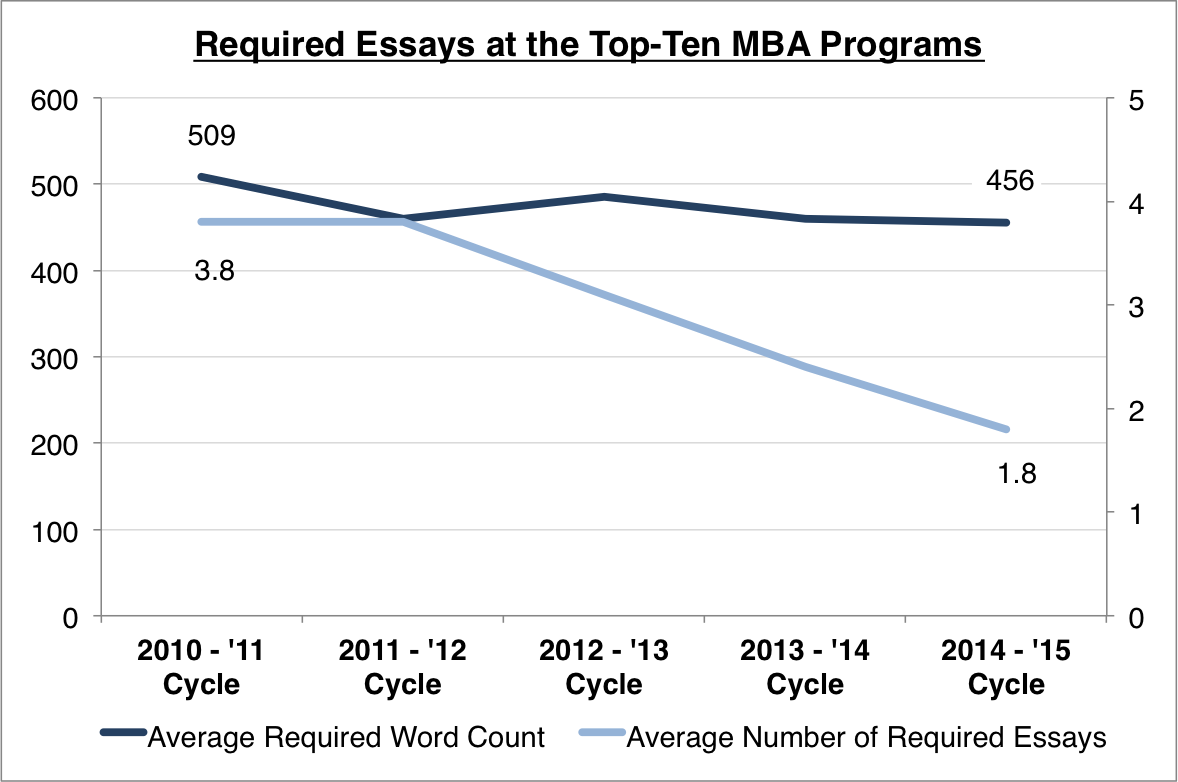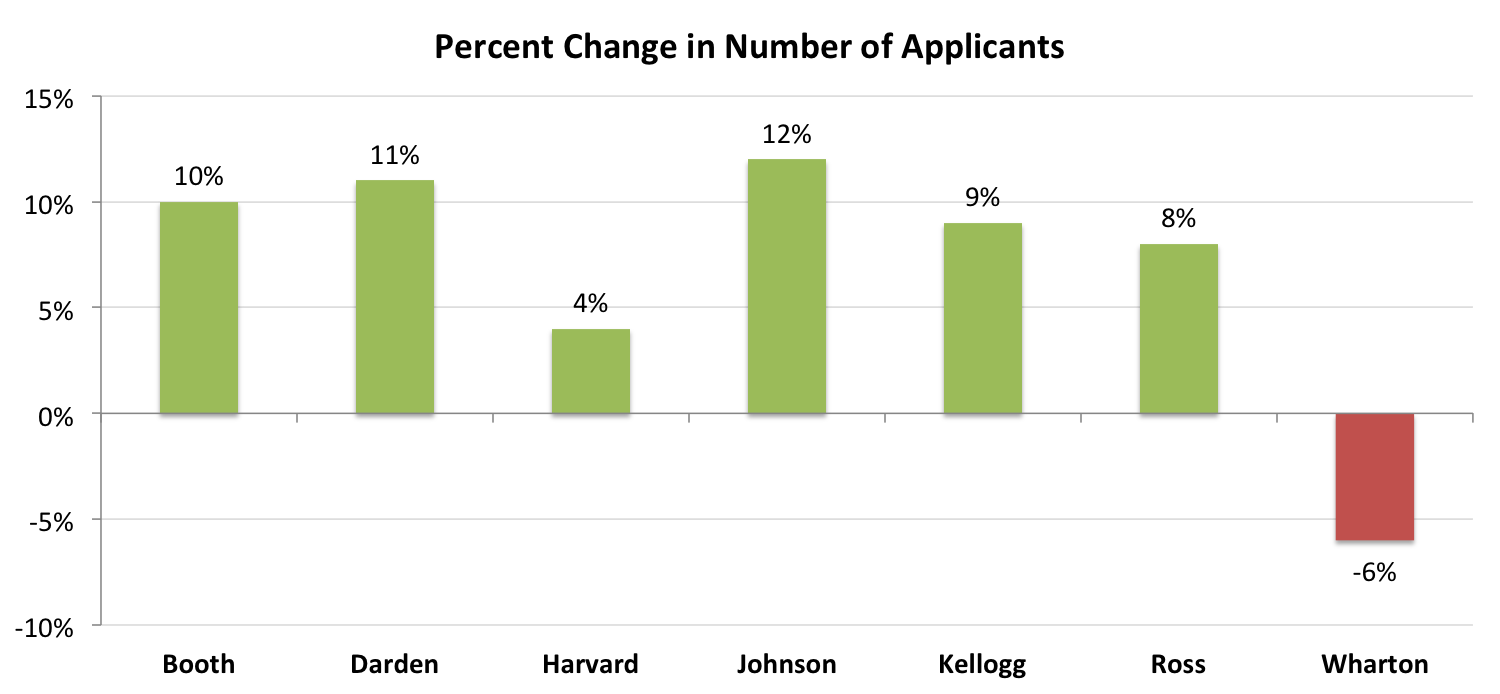How to Make the Most of a Shrinking MBA Admissions Application
MBA admissions essays are quickly disappearing. In fact, an applicant applying to the top ten MBA programs today would be required to complete fewer than half as many essays today as she would have just five year ago. And – she’d have to do it in a lot less space, with the average word limit per essay a mere 75% of what it used to be:
Since last year, HBS has no longer required that applicants write any essay (although only 10 of the 9,543 candidates that applied last cycle actually opted not to submit one). Wharton, meanwhile, moved to require only a single essay of its applicants this year. Even Columbia and Haas, the only programs among the top ten that still require applicants to write more than two essays, have reduced the word limit that applicants are allowed.
Why Essays are Disappearing
Having read many applications, I can attest to the fact that you don’t need four essays and 2,000 words to gauge an applicant’s compatibility with a program. So I don’t mean to cynically suggest that business schools’ motives are entirely self-serving here. With that said, however, logic holds that requiring fewer essays and shorter word counts – essentially decreasing the cost to apply – will increase the number of candidates that submit applications. Increasing the number of applicants will, in turn, decrease a school’s admittance rate, making the school seem more selective and helping to keep the top-ranked programs top ranked.
Additionally, there’s no doubt that reducing the number of application essays also reduces the burden on busy admissions staff. Ensuring that there are fewer essays to read will also ensure that fewer resources are required to do so, something any admissions director could get behind.
Finally, admissions committees are likely looking for a more focused story and essay set from their applicants, who can meander quite a bit over the course of 2,000 words. This raises the next logical question, which is what fewer essays should mean for aspiring applicants…
What it Means for Your Applications
The reduction in essays has been a pretty remarkable shift, and it certainly has consequences for applicants applying this year:






